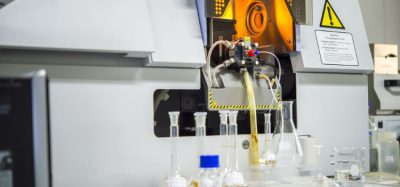Aimovig®displays superiority over topiramate in migraine study
Posted: 10 November 2021 | Anna Begley (European Pharmaceutical Review) | No comments yet
Amgen announces positive results from the first and only randomised, double-blind, head-to-head study comparing Aimovig® to topiramate.


Amgen has announced new data from the HER-MES Phase IV study, the first and only head-to-head study of Aimovig® (erenumab-aooe), a calcitonin gene-related peptide (CGRP) inhibitor, against topiramate for adult patients with episodic and chronic migraine.
Published in Cephalalgia, the results of the study conducted by Novartis showed that patients in the Aimovig treatment arm experienced a significantly lower discontinuation rate due to adverse events and superior efficacy, with a greater proportion of patients achieving at least a 50 percent reduction from baseline in their monthly migraine days (MMDs), compared with topiramate.
HER-MES is the first randomised, double-blind, double-dummy, active-controlled, parallel-group Phase IV study to assess tolerability and efficacy of Aimovig versus topiramate in a patient-centred setting. The primary endpoint was treatment discontinuation rate due to adverse events of 70mg and 140mg Aimovig monthly compared with 50 to 100mg topiramate daily during the double-blind treatment phase of the study. The secondary endpoint was efficacy of 70mg and 140mg Aimovig monthly versus 50 to 100mg topiramate daily in terms of at least a 50 percent reduction in monthly migraine days from baseline in the last three months of the double-blind, 24-week treatment phase.
The HER-MES study enrolled 777 adult patients with episodic or chronic migraine (≥4 migraine days per month) who had not previously received migraine prevention treatment or had failed up to three previous therapies with propranolol/metoprolol, amitriptyline and/or flunarizine.After the two-week screening and four-week baseline phase, patients received either Aimovig subcutaneously and topiramate placebo orally or topiramate orally and Aimovig placebo subcutaneously.
Patients in the Aimovig arm demonstrated a significantly lower discontinuation rate due to adverse events versus patients in the topiramate arm (10.6 percent versus 38.9 percent). Additionally, significantly more patients in the Aimovig arm achieved at least a 50 percent reduction from baseline in their MMDs than those in the topiramate group (55.4 percent versus 31.2 percent).
In the topiramate group, the most frequent adverse events that led to discontinuation of the study medication were paraesthesia, disturbance in attention, fatigue, and nausea. In the Aimovig group, these were fatigue, nausea, disturbance in attention and dizziness.
“HER-MES is the first study that directly compared the therapeutic effects of an antibody and a small molecule in migraine prevention,” stated Dr Uwe Reuter, trial investigator and managing medical director at Charité Universitätsmedizin in Berlin. “The positive outcomes strengthen the efficacy and safety profile of erenumab as a migraine prevention treatment for patients with migraine.”
Related topics
Big Pharma, Data Analysis, Dosage, Drug Safety, Research & Development (R&D), Therapeutics









